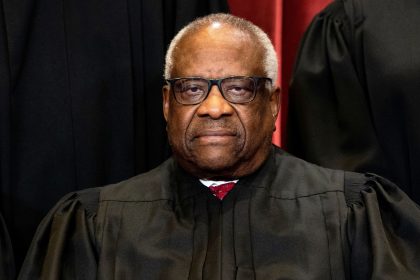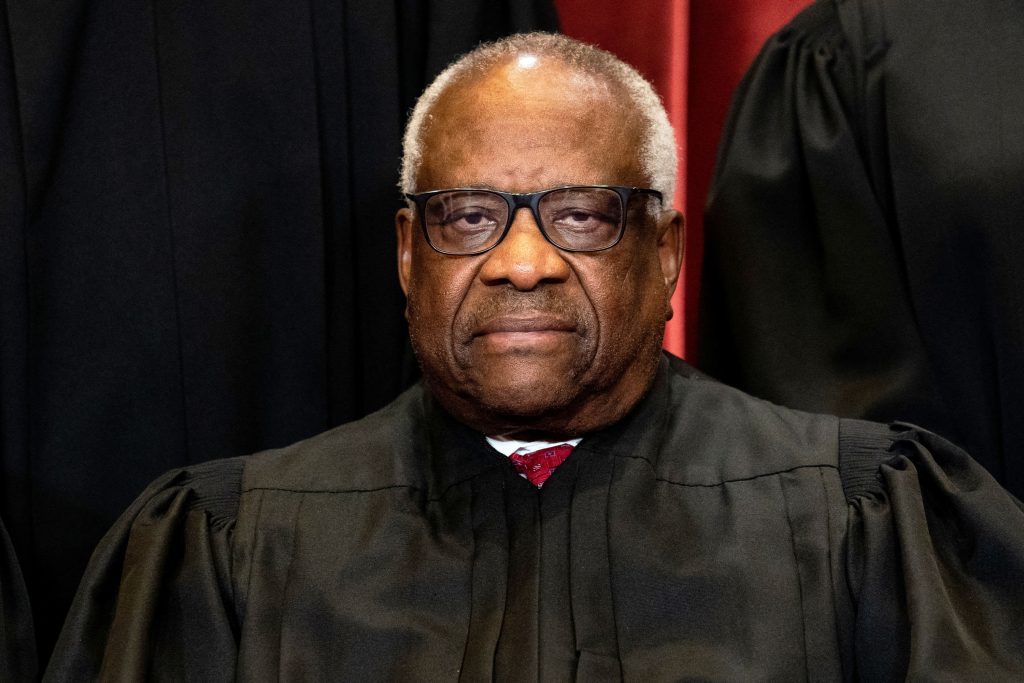
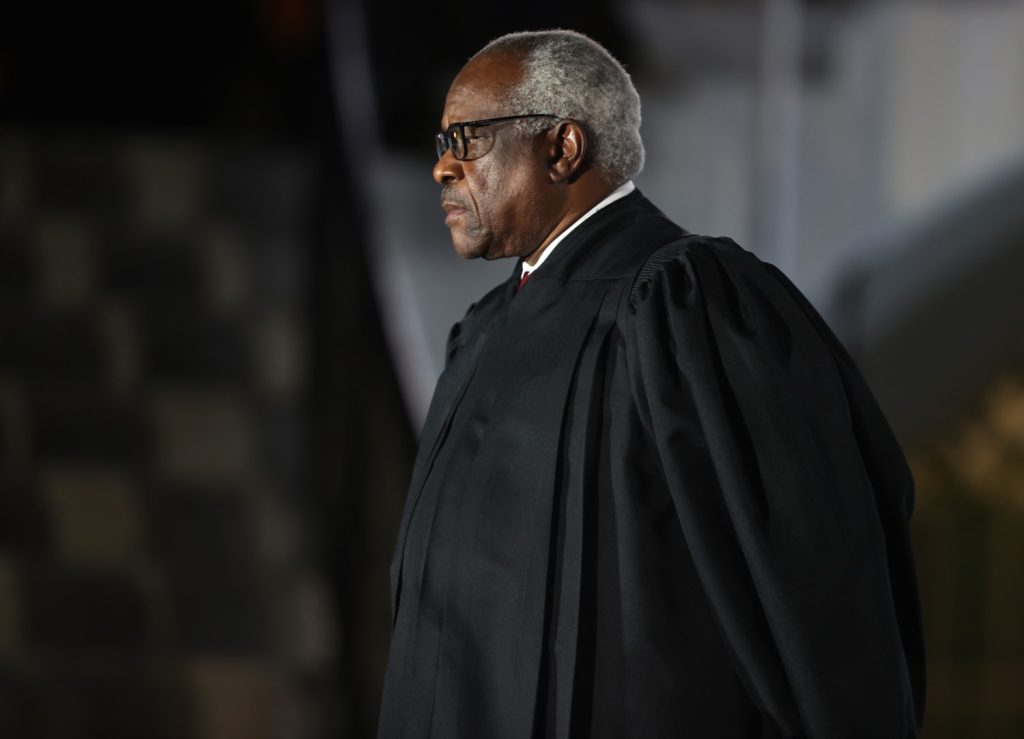
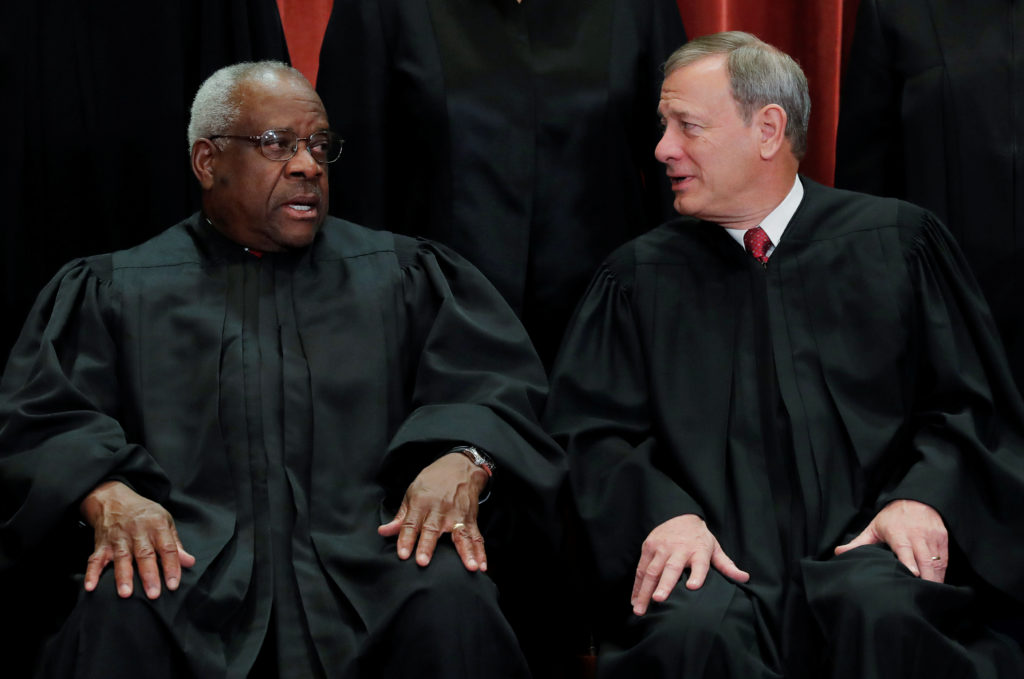
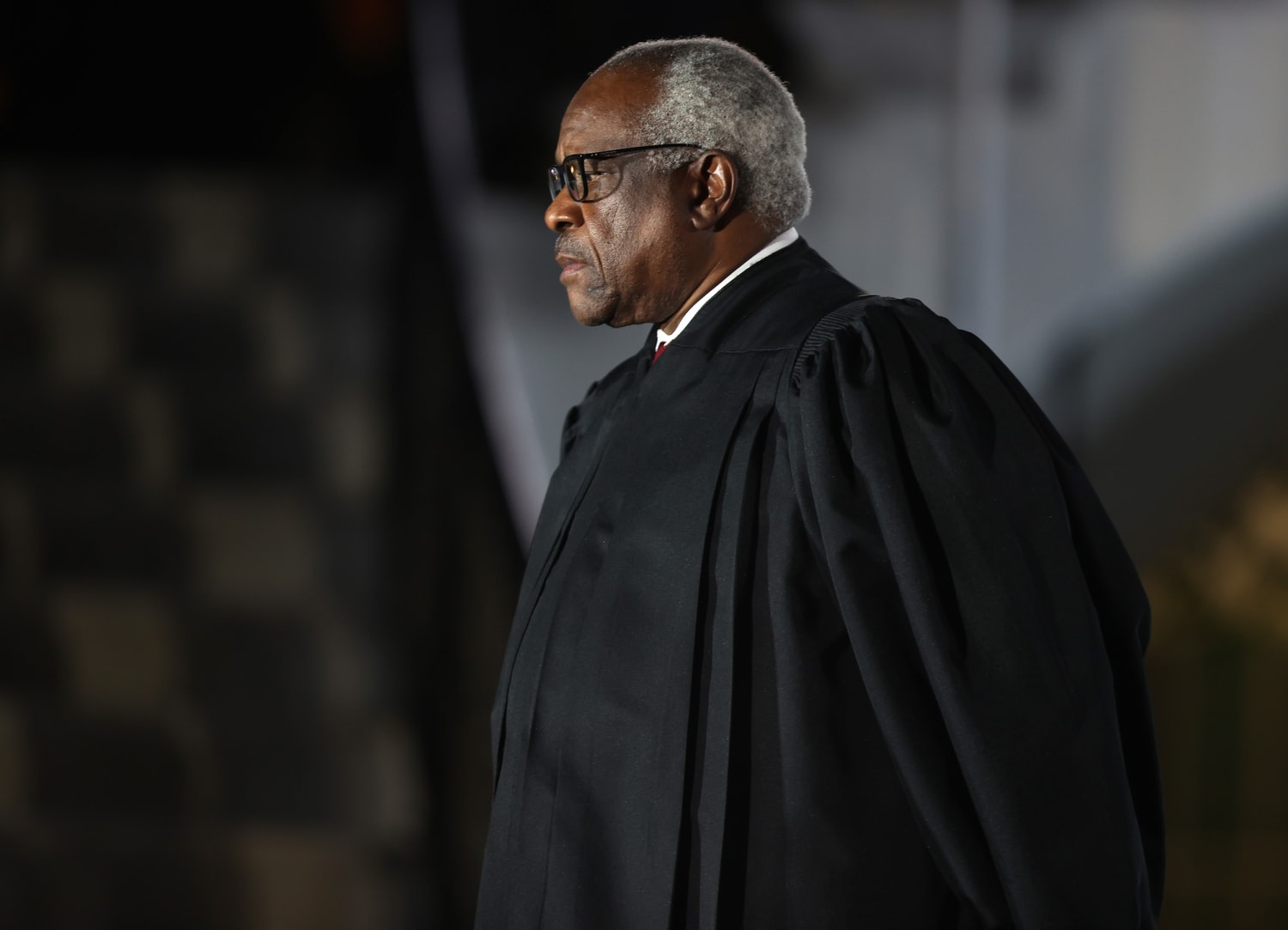
U. S. Supreme Court Clarence Thomas has accepted $4M in gifts during career-American Watchdog Group
…Majority of Americans no longer trust the Supreme Court
*Failed to reveal Expensive gifts, Travel in recently submitted Disclosure
*Supreme Court justices have received nearly $5 million in gifts since the early 2000s
*6 in 10 Americans disapprove of United States Supreme Court performance-The Marquette Law School survey
*BY SANDY ABRAHAM/WASHINGTON DC Correspondent, NAIJA STANDARD NEWSPAPER
SCANDAL and grave accusations have rocked the highest court in the United States-the Supreme Court for allegedly allowing grift and corruption breed to soil the image of the apex court by one of the Justices, Justice Clarence Thomas who has been flayed by a section of the American media for receiving a hefty sum of nearly $5 million in gifts since the early 2000s, yet, did not disclose majority of his gifts and travels.
Data released Thursday by watchdog group Fix the Court unveils a list of gifts justices have received since January 2004. The dataset was released ahead of an expected release of the justices’ financial disclosure reports Friday.
Thomas, nominated to the high court by former President George H.W. Bush, made headlines last year after an investigation found he had taken dozens of trips paid for by separate billionaire friends.
According to the data compiled by Fix the Court, since 2004, Thomas has accepted $4,042,286, or 193 gifts. The group reported that, for Thomas, there’s an additional 126 “likely but not confirmed gifts.”
Of the nearly 200 gifts, the group said Thomas only reported 27 of the gifts on his financial disclosures.
The dataset included current and former justices dating back to 2004, tallying their gift totals, including Thomas’s, to be about $4.7 million.
“Supreme Court justices should not be accepting gifts, let alone the hundreds of freebies worth millions of dollars they’ve received over the years,” Fix the Court’s Gabe Roth said in a statement. “Public servants who make four times the median local salary, and who can make millions writing books on any topic they like, can afford to pay for their own vacations, vehicles, hunting excursions and club memberships.”
Roth continued, arguing that there is influence in who gives the justices gifts and what they are buying with their “generosity.”
“The ethics crisis at the court won’t begin to abate until justices adopt stricter gift acceptance rules,” he said.
The watchdog group acknowledged that the total gift calculations may be lower than what’s actually true. For example, the group was unable to verify a hunting lodge that Justice Antonin Scalia stayed in, and Scalia, along with Justices Ruth Bader Ginsburg and William Rehnquist, died in office, so the numbers “might be undercounts.”
Scalia received the second-highest total in gifts, with $210,164 from Jan. 2004 to his death in 2016.
The list of gifts comes after Democrats called for Justice Samuel Alito to recuse himself from cases related to Jan. 6 and former President Trump currently before the court in light of reports that a “Stop the Steal” flag was flown outside his house after the attack on the Capitol.
Last week, Alito rejected the calls to recuse himself in the cases.
Alito received the third-most gifts, with $170,095 from his first day on Jan. 31, 2006, to present day, the data said.
*U.S Supreme Court low Poll: Majority of Americans no longer trust the Supreme Court!
Four years ago, the Supreme Court of the United States was, by far, the most-trusted institution in Washington.
Now, as the high court nears the end of another potentially seismic term, public trust in the court has eroded.
Americans’ trust in the court dropped 20 points from 2020 to 2022, according to Gallup, to a record-low 47%. For the first time, a plurality of Americans (42%) viewed the court as “too conservative.”
Partisanship has been a principal driver of the loss of trust. Since late 2020, the high court has had a 6-3 conservative supermajority. It has delivered several high-profile decisions favoring conservative policies, including overturning the right to abortion, ending affirmative action in college admissions, and expanding gun rights. While Republican confidence in the court has remained steady, trust has cratered among Democrats and some independents.
But the court is also taking, or being forced by lower courts to take, a steady diet of high-profile, politically charged cases. Meanwhile, the overall size of its docket is the smallest it’s been since the Civil War. As a result, the controversial cases take up even more oxygen. And the justices themselves, with ethics scandals and their public rhetoric, have at times given the impression that distrust is merited.
Cases this term could further break, or buttress, trust in the court. On Thursday, former President Donald Trump will argue – to a high court that includes three justices he appointed – that he should have immunity from criminal prosecution for conduct while he was in office.
There is a clear path toward rebuilding trust, however. The Supreme Court had been the most-trusted government institution for decades because it acted with humility and avoided dramatically reshaping the law, legal experts say. The justices also modeled civility and how to work across ideological divides. With another potentially seismic term concluding in the next three months, the court has an opportunity to rise above the partisan turbulence of Washington again.
“We’ve seen this real partisan trust gap emerge,” says Matthew Levendusky, a political scientist at the University of Pennsylvania who has studied public perception of the court.
“If it seems like it’s just another conservative institution, then that will further erode trust. But if they can combat that perception, that will help to go a long way toward restoring at least some of that,” he adds.
While the high court decides big cases every year, in recent years “they’re big cases with a political valence, and that has not always been the case,” says Linda Greenhouse, author of “Justice on the Brink.”
“People don’t read Supreme Court opinions. … What matters at the end of the day is what the court does,” she adds. And because of what the court has done in the past few years, “the public has measurably lost confidence in, and respect for, the Supreme Court.”
In the past, the Supreme Court maintained a high degree of public trust by making a habit of never straying too far from the middle. This didn’t mean avoiding consequential cases. It meant, in a broad sense, not rocking the country too far in one direction or another. Like blind Lady Justice holding her scales, it appeared to strive for balance.
Over the decades, that balance has been determined by a series of moderate “swing” justices. Among the most influential was Justice Anthony Kennedy. From the early 1990s to his retirement in 2018, he infuriated Democrats and Republicans alike with his unpredictability. His vote proved decisive in finding an individual right to bear arms, as well as an array of LGBTQ+ rights.
*53 percent Americans disapprove of United States Supreme Court performance-The Marquette Law School survey
The Marquette Law School survey found that 47 percent of adults approved of the job the U.S. Supreme Court is doing-the highest in over a year- while 53 percent disapproved.
Americans’ approval of the Supreme Court is trending up, according to a poll released Wednesday.
The Marquette Law School survey found that 47 percent of adults approved of the job the Supreme Court is doing-the highest level in over a year-while 53 percent disapproved.
The survey, which was conducted from March 18 to 28, showed a marked change from a poll taken in February, when 40 percent of adults approved of the Supreme Court, while 60 percent disapproved.
The upturn comes as the court has tackled several high-profile cases, including the question of whether states can ban former President Donald Trump from the 2024 presidential ballot.
In that case, the court unanimously ruled that states cannot bar Trump from the ballot based on the 14th Amendment’s insurrection clause. More than half of those surveyed supported the court’s decision.
At the end of April, the Supreme Court will hear oral arguments on whether former presidents should enjoy immunity from criminal prosecution for official actions taken during their presidency. The case stems from prosecutions of Trump related to his efforts to contest the 2020 election and his involvement in the Jan. 6, 2021 attack on the Capitol.
In February, the D.C. Circuit Court of Appeals ruled unanimously that Trump is not immune from prosecution.
Few poll respondents thought that Trump should be immune: When the question was asked without Trump’s name, only 20 percent thought former presidents should be granted immunity, while 28 percent said the same when his name was included in the question.
The court heard oral arguments about a lower court decision restricting access to mifepristone, a drug used in medication abortions, at the end of March. The majority of adults-60 percent-said the court should maintain the current level of access to the drug, which would mean overturning the lower court’s ruling.
That case comes nearly two years after the court overturned Roe v. Wade, which protected abortion rights nationwide. Approval of the court plummeted after the ruling, and has not reached the same levels since then.
DONATE TO HELP BUILD A SPECIAL APPS FOR JOURNALISTS AGAINST LIVER ELEVATION & KIDNEY FAILURE:
CERTAINLY, Good journalism costs a lot of money. Without doubt, only good journalism can ensure the possibility of a good society, an accountable democracy, and a transparent government. We are ready to hold every corrupt government accountable to the citizens. To continually enjoy free access to the best investigative journalism in Nigeria, we are requesting of you to consider making a modest support to this noble endeavor.”
By contributing to NAIJA STANDARD NEWSPAPER, you are helping to sustain a journalism of relevance and ensuring it remains free and available to all without fear or favor.
Your donation is voluntary — please decide how much and how often you want to give. For offline donation, email: letters@nigeriastandardnewspaper.com or call +2348037128048 (Nigeria) or +16825834890 (United States of America)


